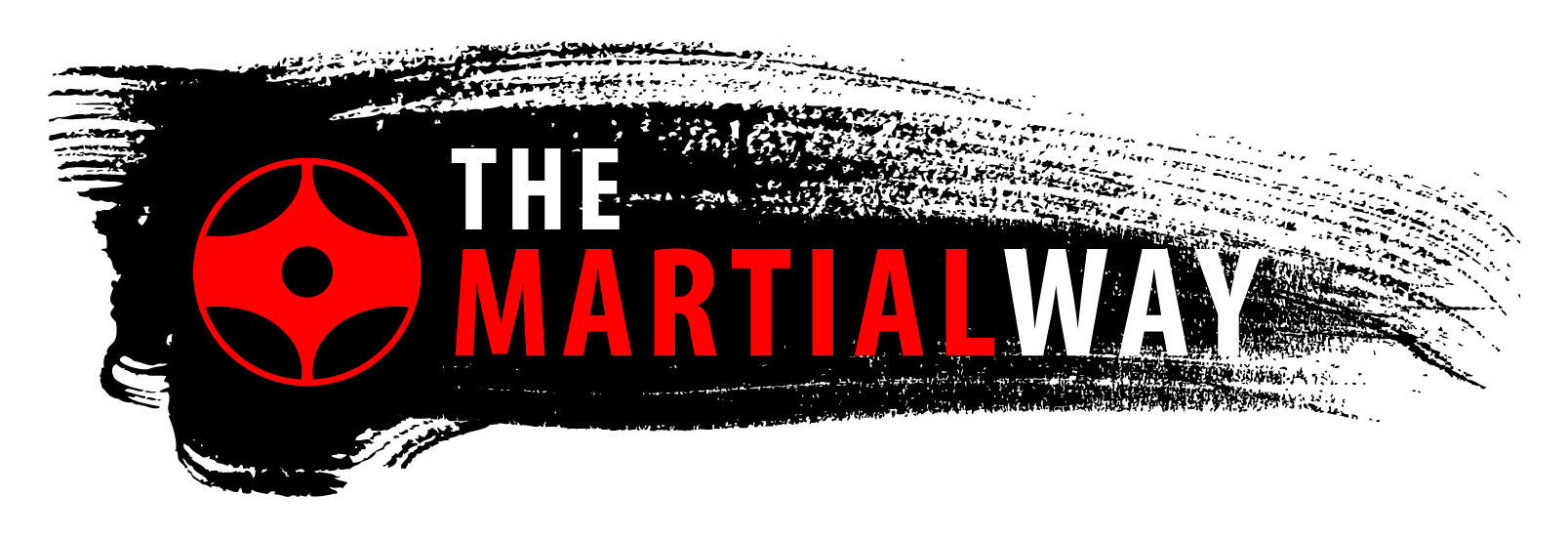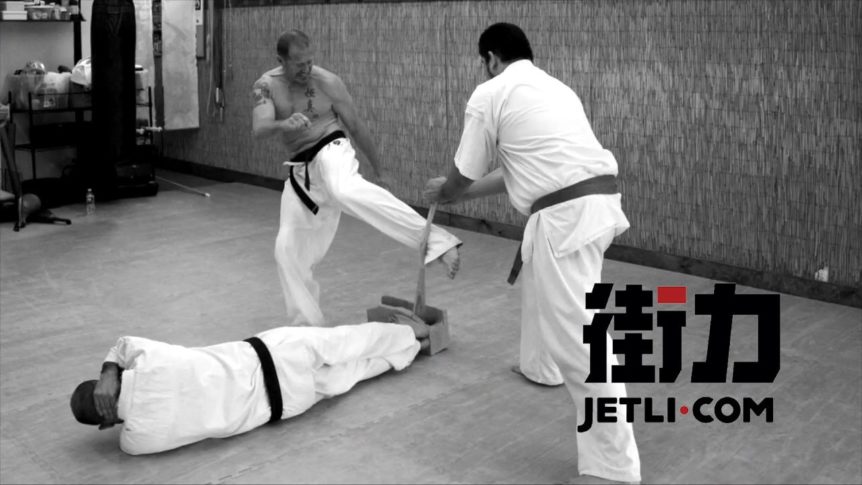Originally posted on jetli.com
An Interview with Sensei Tom Callahan
Tom Callahan, 4th Dan, Head of the L.A. Branch of Kyokushin-Kan Karate, has been successful in his life by just about any measure. With the release of this short film about him and his dojo, World Budo Arts.
We caught up with him over Skype about his martial arts journey a few days before he sets off on a whole new journey: Tom Callahan is leaving his Santa Monica Dojo (in good hands) and moving to Boulder, Colorado to open a new dojo in the Rockies.
Besides the intensity and passion which is so obvious in the film that we did here at jetli.com, Tom Callahan is charming, warm, and funny.
He’s the kind of guy you’d like to have a drink with and swap stories.
In our talk with him, at this bittersweet moment in his career, Tom Callahan was able to offer some inspiring reflections on his life and philosophy. Here are some highlights:
On The Connection Between Music and Martial Arts in His Life:
Well you know I’ve only done two things in my life— it’s always been music and martial arts. I never learned to put a nail in a piece of wood. I can’t change the oil in my car. I can’t do it. I can’t put Ikea furniture together.
My first professional job was 9 years old, playing drums. So I’ve been a musician all my life. I was a music major in college. I quit school my second year in college. And I ended up playing professionally, touring.
I came out to California on my 21st birthday. Didn’t know a soul. All I knew was I was a pretty decent musician, I could take care of myself physically, and I had 600 dollars in my pocket and I said, okay, we’re gonna see what I can do. I ended up getting into the record business at 25, 26 years old.
Look, I started training when I was 11, started playing music about that time, so I know I always felt like music and fighting had two things going on—a rhythm of movement and also a certain kind of respect.
When you’re fighting an opponent there’s a certain relationship and respect there. When you’re in a band you have to respect the other musicians, you’re always listening as well as playing. When you’re fighting, you and your opponent have a relationship dynamic of course.
Even though you’re fighting you have a certain relationship going. Then of course, there’s the actual movement which is also rhythmic. It’s all breath, movement, timing, its rhythmic.
BLOCKING, COUNTER, BLOCKING COUNTER— IT’S DEEP, IT’S INTUITIVE.
And that comes from years and years of doing it. It just becomes intuition, you just trust yourself. In Japanese there’s a word for it they call mushin, it translates to no mind. There’s no thought involved, when I’m playing something, I’m in the moment, I’m not thinking about chord solo, I’m just doing it.
It’s the same thing about fighting. You’re not thinking, “I gotta block, I gotta counter.”You just do it. And I always felt close to music and martial arts and I always felt like they were together even attitude wise.
On Discipline and Sacrifice in Martial Arts and Music:
To be a good martial artist or musician requires an enormous amount of self-discipline. I remember when I was young, people would invite me to parties, but I’d be like, “Nah I gotta stay in.”
And they’d be like, “What are you stayin’ in for?”And I’d tell them I gotta’ practice. But you know, I knew what I wanted to do. I knew what made me happy. And I knew that self-sacrifice was required in order to be good at what I wanted to do.
You know, I tell my students, “You’ve got to sacrifice for your art.” I mean art in the bigger sense or meaning of the word, you’ve got to sacrifice to be good at anything. To be good and to be more than average requires a lot of sacrifice, a lot of discipline. That’s something I really try to teach my students especially my younger students.
I’ve been successful, but the only reason I’ve been successful is because of sacrifice and self-discipline. And if you don’t have good parenting, good teachers, or any kind of mentor, it think it’s hard to understand that.
I think it’s really important to find a good teacher who understands this, because otherwise it’s just punching and kicking, and who cares?
On the Reason His Students Train:
Sometimes I’ll line my students up and I look at my students and I ask them, how many of you have ever been in a fight? About three students hands will go up.So I say, why are you here? Tell me why you’re here. And they can’t answer it right away.
They say, “I want to lose weight”, “I want to be tough”.
But when I ask them more deeply, “Why do you wanna be so tough? What is it?” What it boils down to really is self-confidence. They want to have self-confidence because life is hard, and you need to have that confidence to make it.
On His Love for Teaching:
I really love seeing the change in students. When they come to me as a white belt, they either think they’re really tough, and they’re not. Or, they have no self-confidence and they really don’t know why they’re there. They just kind of know, innately that they need something in their life.
It’s been very emotional these last couple of weeks, and I’m leaving next week. A lot of them look at me like a dad, a lot of them come from broken homes. Half of the students I don’t even charge them any money because what am I gonna charge them for?
They can’t afford it. They’re taking a bus to class. But they’re there four times a week. That’s dedication. That’s what I’m trying to teach.

